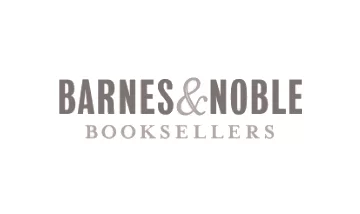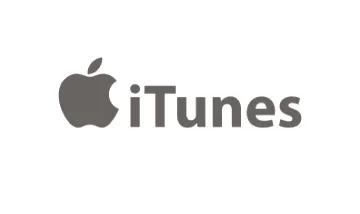The Newman Springs Difference
BECOME A PUBLISHED AUTHOR
Start Your Publishing Journey with Newman Springs
Newman Springs provides a complete publishing solution for authors, including a dedicated literary agent, experienced manuscript editors, custom design services, printing with ISBN and barcode support, eBook conversion, and strategic marketing via press releases, commercials, and podcast interviews. Our package covers editing, design, printing, eBook conversion, and extensive marketing support to enhance your publishing journey.
01
EDITING
Our team of proficient editors will carefully review your manuscript, offering clear corrections and suggestions to ensure top-notch quality for your readers. You will retain the final say on all suggested changes, preserving your vision for the end product.
02
DESIGN
Our skilled art department excels in crafting custom illustrations and professional page layouts, enhancing the overall readability of your book. They work closely with you to design a cover that encapsulates your book’s essence and adheres to the criteria of prominent bookstore retailers, ensuring your book shines both online and on physical shelves.
03
PRINT & EBOOK
We take care of every aspect of printing your book, from securing ISBNs and barcodes to utilizing premium paper and full-color glossy covers with perfect binding. Furthermore, we’ll convert your title into eBook formats, ensuring accessibility to readers using tablet devices and eReaders.
04
MARKETING & DISTRIBUTION
Our marketing team will generate press releases to unveil the release of your book, craft commercials for broadcasting on streaming video platforms, and coordinate interviews with chosen authors on well-known podcasts dedicated to literature. These interviews will center on the author, the book’s inspiration, and its narrative, effectively broadening your exposure to a larger audience.
FAQs About Self-Publishing
What is self-publishing?
Self-publishing is a method of publishing where the author independently publishes their book without the involvement of a traditional publishing house. In this model, the author is responsible for the entire publication process, including writing, editing, designing, formatting, and marketing the book, or hires professionals to do these tasks. Self-publishing has grown in popularity, providing authors an alternative way to reach readers and maintain greater control over their creative work. However, it requires significant effort and learning in areas beyond writing, such as marketing, sales, and business management.
What are the steps to self-publish a book?
- Write and edit your manuscript
- Design a professional cover
- Format your manuscript
- Obtain an ISBN
- Choose a publishing platform
- Develop a marketing plan
- Set the price and royalties
- Publish your eBook
- Publish your paperback or hardcover
- Launch your book
- Monitor sales and reviews
- Promote your book
- Expand distribution to other formats, like audiobooks
Alternatively, you can entrust us with managing the publishing aspects, allowing you to dedicate your time to writing.
What’s the difference between self-publishing and traditional publishing?
Control: Self-publishing grants authors complete control over their book’s production, from writing to distribution, allowing total creative freedom but requiring significant effort. In contrast, traditional publishing involves relinquishing some control, as publishers handle design, pricing, and distribution decisions, often with limited author input.
Publishing Process: Self-publishing requires authors to manage or outsource all aspects of the publishing process, including editing, design, and platform selection. Traditional publishing places these responsibilities on the publisher, who manages editing, design, printing, and marketing.
Speed: Self-publishing offers a quicker route to market, as authors can publish immediately after completion. Traditional publishing, conversely, involves a longer process, often extending over years, due to thorough reviews and extensive production stages.
Royalties: Self-published authors typically receive higher royalties depending on distribution methods. Traditional publishing offers lower royalties, usually between 8% and 15%, contingent upon earning out an advance.
Marketing and Promotion: In self-publishing, authors bear the responsibility for marketing and promotion, necessitating efforts in building an author platform and engaging in various promotional activities. Traditional publishers provide marketing support through dedicated teams, though the extent varies, and author involvement is often expected.
Ultimately, the choice between self-publishing and traditional publishing hinges on an author’s goals, preferences, and resources, with some opting for a hybrid approach to leverage the benefits of both methods.
What is hybrid publishing?
Hybrid publishing is a model that blends elements of both traditional and self-publishing, offering authors an alternative pathway to get their work published. This model has gained popularity as it tries to combine the best aspects of both worlds. Hybrid publishers often provide professional services similar to traditional publishers, including editing, design, distribution, and sometimes marketing. These services ensure that the book meets professional standards regarding quality and presentation. It’s important for authors considering hybrid publishing to carefully research and choose reputable hybrid publishers, as they can vary widely in terms of practices and quality. Authors should thoroughly understand the terms of any agreements, including costs, royalties, rights, and the specific services the publisher provides.
What types of authors use hybrid publishing?
Hybrid publishing, also known as hybrid self-publishing or assisted self-publishing, is a publishing model that combines elements of traditional publishing and self-publishing. Authors who choose hybrid publishing fall into the following categories:
Emerging Authors: Many new and emerging authors opt for hybrid publishing because it offers them some of the benefits of traditional publishing, such as access to professional editing, cover design, and distribution services, while still allowing them to maintain creative control and a higher share of royalties.
Genre or Niche Authors: Authors who write in niche genres or have a specialized audience may find hybrid publishing a good fit. Traditional publishers may be less inclined to take on books with a limited market, but hybrid publishers can cater to these niches.
Authors with Limited Resources: While self-publishing offers creative control, it also requires authors to handle all aspects of publishing, including editing, cover design, and marketing. Authors with limited resources in terms of time, skills, or finances may turn to hybrid publishing to access professional services.
Authors Looking for Distribution Support: Hybrid publishers often offer distribution services that can make it easier for authors to get their books into bookstores, libraries, and online retailers. This option appeals to authors who want broader distribution than they could achieve through self-publishing alone.
Authors Seeking a Customized Approach: Hybrid publishers often offer customizable publishing packages, allowing authors to select the specific services they need. This tailored approach can be attractive to authors who want more control over the publishing process.
Established Authors Expanding Their Catalog: Some traditionally published authors choose hybrid publishing for specific projects, such as novellas, short stories, or books outside their primary genre. It allows them to publish these works more quickly and with greater control.
Authors with Existing Platforms: Authors with a substantial online presence or a dedicated fan base may choose hybrid publishing to leverage their existing platform for marketing and sales.
How do I choose a hybrid self-publishing service?
Choosing a hybrid self-publishing service is an important decision for authors, and it’s essential to make an informed choice to ensure that you get the services and support you need while avoiding potential pitfalls. Here are some steps to help you choose a hybrid self-publishing service:
Define Your Goals: Determine what you hope to achieve with your book. Are you looking for validation, professional services, broader distribution, or a combination of these factors? Knowing your goals will help you narrow down your options.
Review Published Books: Look at books previously published by the hybrid publisher. Assess the quality of editing, cover design, and overall production values. Are the books well-presented and professional?
Assess Services Offered: Carefully review the services offered by each hybrid publisher. Common services include editing, cover design, formatting, distribution, and marketing support. Ensure that they provide the specific services you need.
Check Pricing and Royalties: Compare the pricing structures of different hybrid publishers. Understand how much you’ll pay for their services and what you’ll receive in return. Also, pay attention to the royalty rates you’ll receive on book sales. Ensure that you’re comfortable with the royalty terms offered.
Review Contracts: Obtain and carefully review the contract provided by the hybrid publisher. Look for hidden fees, exclusivity clauses, or rights-related terms that may affect your book.
Clarify Distribution: Understand the distribution channels the hybrid publisher offers. Ensure your book will be available in the formats and through the retailers or distributors you desire. Inquire about international distribution options if you have a global audience.
Marketing and Promotion: Discuss the marketing and promotional support the hybrid publisher provides. Ask about their marketing strategies, including book launches, advertising, and author branding.
Reputation and Transparency: Look for publishers with a transparent and professional reputation. Avoid publishers with numerous complaints or reports of unethical practices.
Publishing 101 FAQs
What's the expected timeline for publishing my book?
Hybrid publishing is a collaborative effort between our authors and us. We prioritize quality while taking into account our authors’ schedules and satisfaction. Typically, authors can expect to have their books accessible through major print and online distribution channels within 6-8 months. We aim to complete the process within ten months.
What type of publishing formats do you offer?
Hardcovers
Hardcover books have durable covers typically made of cardboard or cloth and are known for their sturdiness and higher production quality. They are often preferred for collector’s editions and library use since they are more durable than paperbacks but more costly to produce and purchase.
Paperbacks
Paperback books have flexible, paper-based covers and are usually less expensive than hardcovers. They are common for novels, non-fiction, and mass-market books. They are lighter and cheaper than hardcovers but less durable.
eBooks
EBooks, short for electronic books, are literary works presented in a digital format. Readers can use this format on electronic devices, such as mobile devices, eReaders, and desktop computers. It also has flexible display options, allowing readers to adjust text sizes and highlight passages in some cases.
Audiobooks
Audiobooks are audio recordings of books, allowing readers to listen to the content rather than read it. They are available in various formats, including CD, digital download, and streaming. While they require a published book, they have the potential to introduce authors to new audiences and provide readers with distinctive and novel experiences.
Is a literary agent necessary for publication?
Many traditional publishers typically mandate the involvement of a literary agent for manuscript submissions. Literary agents serve as intermediaries, presenting your work to publishers. Without an agent, your manuscript is often categorized as unsolicited, and most such submissions are usually declined outright.
It’s worth noting, however, that securing a reputable literary agent can be as challenging as securing a publishing deal with a traditional publisher. Additionally, agents cannot guarantee publication and typically operate on a retainer or other fee-based arrangements.
I've published my book somewhere else. Can I transition to Newman Springs Publishing?
If you retain the rights to your manuscript, we can republish your previously released work as a second edition. Our services include addressing any prior publication errors, enhancing your book by redesigning the cover if necessary, and implementing an upgraded publicity campaign to promote it effectively.
If you do not hold the rights to your manuscript, you will need to review your existing contract to determine the duration of the rights lock or explore options for reclaiming your rights.
READY TO GET STARTED?
Get Your Complimentary Writer's Guide Now!




